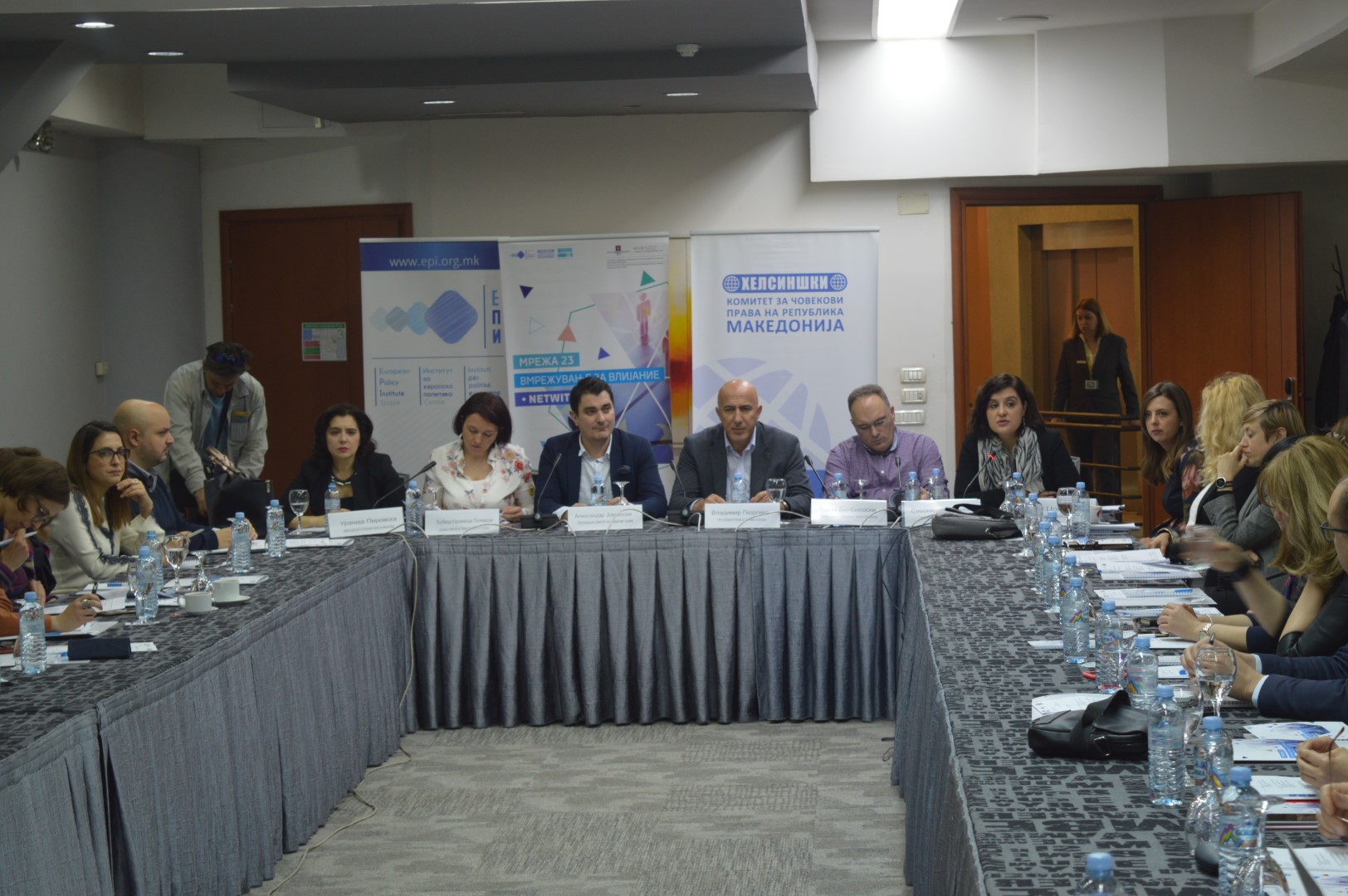During the reporting period in North Macedonia key reform laws in the area of judiciary and human rights were adopted, but the practical implementation of those laws, that will be important in the accession negotiations for EU membership in Chapter 23, remains to be seen.
This was highlighted at today’s policy dialogue “Reforms in Chapter 23” organized within the project “Network 23 – Networking for Impact (NETWIT 23)”, implemented by the European Policy Insitute (EPI) and the Helsinki Committee for Human Rights of the Republic of Macedonia. At the event the fourth “Draft of the Shadow report for the Chapter 23 for the period June 2018 – March 2019” was presented and discussed.
“It’s important to note that the implementation of the adopted laws is yet to come, but given the lengthy discussion of these laws, and the fact that they got positive recommendation from the Venice Commission, we expect that they will set a good basis for remedying certain mistakes we have identified in the past years, that were also noted in the report by Priebe and the Senior Experts Group” said the director of EPI, Simonida Kacarska.
She added that this shadow report is comprehensive for Chapter 23, which covers Judiciary and fundamental rights.

Kacarska stressed that the key anti-corruption law reform law was the Anti-Corruption Law, as well as the election of the Anti-Corruption Commission, and the way it was elected.
“We should have in mind that it’s hard to determine the level of achievement for the laws that the president didn’t sign or that are still in parliamentary procedure, so probably our next report will focus on the achievements and effects by this laws. Also the institutions will need to monitor and evaluate their effects, which is important in the context of starting the accession negotiations and the screening process” she added.
The director of the Helsinki Committee for Human Rights, Uranija Pirovska, noted that in the reporting period crucial laws were passed, such as The Law on Prevention and Protection against Discrimination and the Abortion Law. She stressed that even though these laws were not signed by the president of North Macedonia, they are a big step forward when it comes to vulnerable groups and especially for the LGBTI community.
“The juvenile prison in Tetovo remains to be completed. It will be important step because now juvenile convicts are in the prison in Ohrid, where they do not have the opportunity for education, nor for re-socialization, which is a very important issue,” said Pirovska and added that the same negative phenomena are still noticed in relation to correctional facilities, especially on the health care of the convicts.

“This report properly detects the progress and the weak sides. We are trying with an inclusive approach and in a transparent way to work and get an opinion from all stakeholders” said Ljubica Karamandi Popcevski, State Counselor at the Ministry of Justice.
Vladimir Georgiev from the State Commission for the Prevention of Corruption noted that the draft of the shadow report realistically presents the situation in anti-corruption policy. He said that work needs to be done to comply with the GRECO recommendations, as according to the latest report, only 6 out of 19 measures have been aligned.
The remarks from today’s policy dialogue will be an integral part of the final version of the Shadow Report for Chapter 23 for the period June 2018 – March 2019, which will be further presented and shared with key national and international stakeholders.






